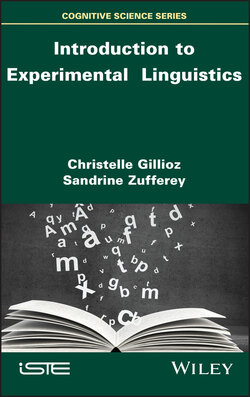Читать книгу Introduction to Experimental Linguistics - Sandrine Zufferey - Страница 14
1.2.3. Control of external variables
ОглавлениеWe have seen that when operationalizing research hypotheses, variables need to be defined with accuracy. The main purpose of such a definition is to isolate the variables studied within the experiment, in order to reach a reliable conclusion as to the relationship between them. In parallel, and for the same purpose, it is necessary to control the other variables, known as external variables, which could influence the variables and the results obtained in the experiment. External variables can be multiple and we will return to them in Chapters 2 and 6, where we will discuss hypotheses and the practical aspects of an experiment. However, it is generally acknowledged that the characteristics of the participants are variables which may interfere with the variables investigated in an experiment.
Going back to the example of the influence of memory on reading comprehension, we may assume that educational level, general cognitive abilities, age, reading habits, etc., can influence both memory and reading comprehension. Likewise, the characteristics of the material used in the experiment may have an influence on the results. If, in the above-mentioned example, we use very simple text and questions, it is possible that everyone answers the questions perfectly well, regardless of their memory skills. On the contrary, if the text and the questions are very complicated, it is possible that very few people will be capable of answering. In these cases, we risk not finding a connection between memory and reading comprehension, not because the link doesn’t exist, but because the material used for the experiment is not suitable for evidencing such a link.
